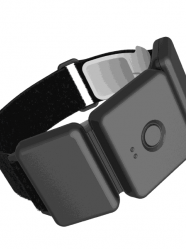FDA Approves Sleep Indication for the NeuroMetrix Sensus Pain Management System

Diabetic peripheral neuropathy (DPN) is a complication that will affect about 60-70% of all people who have diabetes at some point in their lifetime. DPN causes reduced sensation and long-term pain due to nerve damage resulting from high blood glucose levels over many years. However, it’s difficult to know if there is any nerve damage until there is an obvious loss of sensation, and some who have had diabetes for a few years may not recognize the subtle signs of neuropathy. The complication is notoriously difficult to treat and the current therapies on the market deal with reducing pain (Eli Lilly’s Cymbalta (duloxetine), Pfizer’s Lyrica (pregabalin), J&J’s chronic pain medication Nucynta ER (tapentadol), and NeuroMetrix’s Sensus device).
The Sensus Pain Management System is a device worn around the calf to alleviate the pain associated with DPN. It uses transcutaneous electric nerve stimulation (TENS) to deliver electric currents that stimulate nerves. Other TENS devices, including the original Sensus, carry a warning against use during sleep because of electric risks if the electrodes are displaced. However, the FDA just approved use of the Sensus during sleep, since the device can sense electrode dislodgement and avoid the overnight electric risks. NeuroMetrix announced that it will work on new versions of the Sensus with features that can also modulate pain and minimize sleep disturbances during the night. The company’s work in DPN is encouraging, given the limited treatment options for this common diabetes complication. –NL







